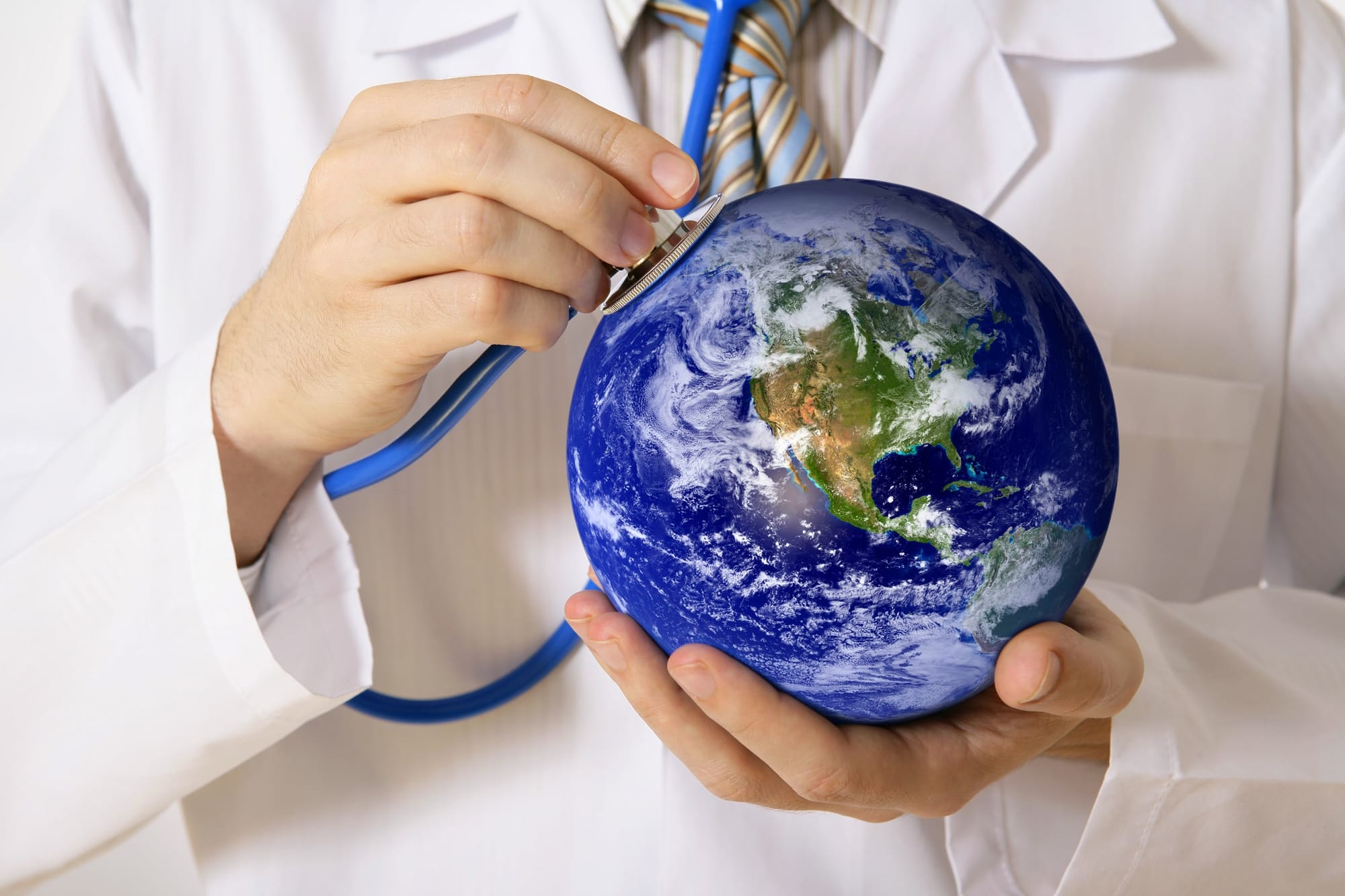
Climate change and environmental degradation threaten to reverse 50 years of advances in human health. Increased extreme weather events, poor air quality and changes to oceans, sea levels and rainfall in turn create conflict, migration, reduced productivity, and food and water insecurity that have physical and mental health consequences.
The World Health Organisation has predicted that between 2030 and 2050, 250,000 extra people would die each year if climate change is left unchecked. Most of these deaths will be due to heat exposure, diarrhoea, malaria and malnutrition. The figure has since been described as a conservative estimate by authors writing for The New England Journal of Medicine in January.
“We think the impact is more difficult to quantify because there is also population displacement and a range of additional factors like food production and crop yield, and the increase in heat that will limit labour productivity from farmers in tropical regions that wasn’t taken into account among other factors,” said co-author and epidemiologist Sir Andy Haines, a former director of the London School of Hygiene and Tropical Medicine.
Climate change is also a social justice issue because the impacts disproportionately affect developing countries. Poverty and sickness often go together. According to the World Bank, if carbon emissions continue to rise, more than 100 million people could be pushed into extreme poverty by 2050. A significant number of people in developing countries will also be forced to leave their homelands as "climate change refugees".
Ironically, the very sector trusted with preventing illness and protecting health is partly responsible. Altogether, the health sector contributes more than 7 per cent of Australia’s carbon footprint, which is the equivalent of the carbon emissions generated by all the people in South Australia. According to a 2018 Lancet article, “The carbon footprint of Australian healthcare” hospitals is responsible for almost half (44 per cent) of these emissions.
As The Lancet explains: “Healthcare itself contributes to our collective carbon footprint, yet reducing this footprint is good for our health.” The idea of encouraging health professionals and healthcare administrators to take a wider view harks back to an edict first pronounced by the ancient Greek physician Hippocrates, who advised practitioners to “first do no harm”.
So what can health professionals do?
Our trusted health workforce has an obligation to stand up and be champions for change. We need the health sector to:
- increase their awareness of the sector’s contribution to climate change and environmental degradation
- reduce this impact by working to change behaviours and practices in health
- advocate for change within healthcare organisations and the wider sector
- recognise the health impacts of climate change that are happening now and will continue to increase in the future
- prepare to provide healthcare that is appropriate to treat, and manage these health impacts.
Health Care Without Harm has developed the Global Green and Healthy Hospitals Agenda that sets out 10 ways hospitals can become more climate-friendly. These include: prioritising sustainability through strong leadership; replacing harmful chemicals with safer ones; reducing waste and finding better ways to manage waste; becoming energy-efficient; generating and using renewable energy; conserving water; using alternative transport strategies (including encouraging staff and patients to walk or cycle to the hospital, or to use public transport); serving sustainably grown local foods; safely disposing of medicines; incorporating the principles of green building design; adopting green and ethical purchasing policies.
Achieving these changes will only be possible if our health workforce is informed and equipped to maintain the principle that healthy environments should be a priority of primary prevention.
A research team of clinicians and academics from Monash's Faculty of Medicine, Nursing and Health Sciences and the Monash Sustainable Development Institute have received funding to explore how to best teach our future health workforce about environmental sustainability and its impacts.
It's an urgent agenda. The current generation of students will be the last able to mitigate the effects of climate change and guide the world through this climate emergency. This research, mapping current teaching practice and investigating educators’ capacity to teach on this topic, is expected to lead to curriculum change so that health profession students are prepared for the extreme challenges the world faces.
Other academics involved in this article include Liza Barbour, James Bonnamy, Bethany Carr, Chanika Ilangakoon, Patricia Schwerdtle and Rosie Wotherspoon.





